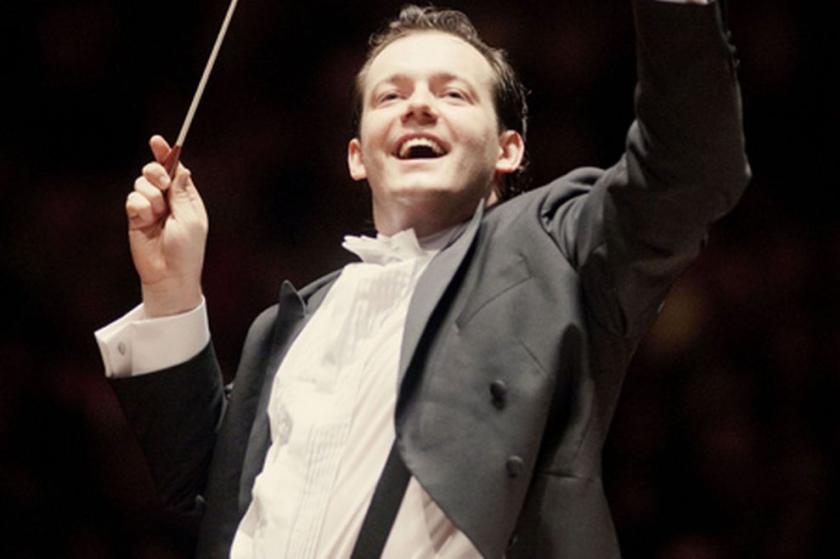Andris Nelsons is flavour of the month in London. He is in town to conduct The Flying Dutchman at Covent Garden, but between performances he is moonlighting at the Festival Hall, giving two concerts with the Philharmonia. This, the first, opened with a serviceable Mozart Piano Concerto No. 25 from Paul Lewis, and concluded with a Bruckner Third Symphony that was in a different league entirely.
The orchestra was reduced for the Mozart, though still large for the repertoire. Nelsons and Lewis have a curious working relationship, the conductor pushing for more expression and phrase shaping than he was getting from the piano. Nelsons drew warm textures from the strings, carefully controlled but with plenty of ebb and flow. By comparison, Lewis’s capricious runs and ornaments seemed undernourished.
 The 25th Piano Concerto is short on memorable melody, a problem exacerbated by Lewis’s classical reserve and avoidance of lyrical indulgence (the pianist pictured right). Which isn’t to say that he was robotic – the was certainly rubato here, and the way that he dwelt on downbeats of on the opening notes of phrases, just a fraction, before catching up with the orchestra, was very much in Mozart’s playful spirit. It just felt that pianist, conductor and orchestra were playing different versions of the same piece, only occasionally finding common ground.
The 25th Piano Concerto is short on memorable melody, a problem exacerbated by Lewis’s classical reserve and avoidance of lyrical indulgence (the pianist pictured right). Which isn’t to say that he was robotic – the was certainly rubato here, and the way that he dwelt on downbeats of on the opening notes of phrases, just a fraction, before catching up with the orchestra, was very much in Mozart’s playful spirit. It just felt that pianist, conductor and orchestra were playing different versions of the same piece, only occasionally finding common ground.
There were no such problems in the Bruckner. Nelsons brings a valuable sense of immediacy to this music, an interpretative honesty that allows him to go to extremes of tempo and dynamic without ever seeming contrived. He will hold quiet passages at the lowest of dynamics, standing in a half crouched position and relying on the sheer tonal lustre of the strings to support the texture. Elsewhere he’ll drive the brass-laden climaxes, pushing the volume ever higher and subtly increasing the tempo to heighten the effect. And it is all done with a seemingly instinctive feeling for the shape of the music – he can draw genuine surprises from this familiar score, but without ever giving the impression that they are surprises to him.
Nelsons opted for the Nowak edition of the 1889 revision, the one with the Wagner quotations removed. It is also more coherent and flowing than the original. And yet there are still some rough edges here and there, and awkward joins between the sections. Or so it seems in most performances, but not here: Nelsons made a virtue of out each of these non sequiturs, integrated them into his narrative. The first-movement coda was one such section. The music here switches from quiet to loud, slow to fast, and has several unexpected break-offs from loud tuttis. But Nelsons has such an innate sense of musical drama that he can instil meaning and logic into each of these changes of direction. Whatever he is presented with he turns to his musical advantage, clarifying and giving dramatic impetuous as he goes. That’s what makes his Wagner so impressive. It worked wonders in Bruckner too.













Add comment